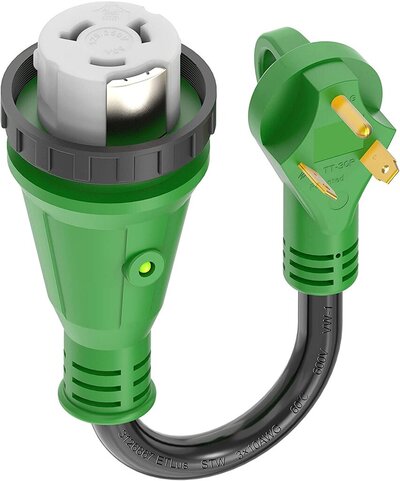Just as an experiment I tried to plot out the route for our recent 2 week, 1,800ish mile trip from Louisiana to the mountains of New Mexico and back in order minimize nightly campground fees, by using Passport America parks, low cost public campgrounds, etc.
All but 3 nights were full hookup 50 amp sites, those 3 other nights were 30 amp water and electric with free dump station. Nightly cost ranged from free, which was at a recently reone free public campground in Andrews, TX a fully paved lot behind the Chamber of commerce with 6 water and electric pull through sites and dump station, limit 3 night max stay. The power posts had both 50 and 30 amp outlets however there was a printed out of order sign on all the 50 amp outlets. Up from that was a 2 nights at a $15 per night city park in Dublin, TX (30 amp water and electric), then 3 night stay at a Passport America park in Llano, TX (2 nights at the 50% off Passport America rate), putting the total for 3 nights combined at about $65 (Full hookup 50 amp), 4 nights at another passport America Park in Mayhill, NM (Cool Pines RV park), $22.50 per night at Passport America rate (limit 3 nights, but they let us stay 4 at the discount rate), new owners doing a lot to fix up the place, very nice, very friendly park, with lots of social activities (free cinnamon rolls in the club house on Saturday mornings, apple dipping with locally grown apples on Wednesday we were there, etc.), and another Passport America park near Waco also $22.50 for one night. The most we paid to spend the night the entire trip was $39 for pull through 50 amp site in Fort Stockton, TX (only 10% off Good Sam discount here), second most was $35 at a somewhat ran down mom and pop RV park near Huntsville, TX (trying to get stopped for the night before the bad weather hit, the heavy rain rolled in about 20 minutes after we stopped).

